Six-Day War Day 5 — Golan Heights are Captured
Reliving Israel’s Victory with a 6-Part Series of the Day-by-Day Action

Note: This is the fifth in our daily re-created coverage of the Six-Day War, which will run through tomorrow (Saturday, June 10). Prior posts: 50th Anniversary of Six-Day War: The Eve of War; Six-Day War Day 1 — War Begins; Six-Day War Day 2 — At the Gates of Jerusalem’s Old City; Six-Day War Day 3 — “The Temple Mount is in Our Hands”; Six-Day War Day 4 — Egypt and Jordan Defeated.
As we reported in prior posts, for the past four days Egypt’s media has been incessantly reporting about false military victories.
But by this morning, President Gamal Abdel Nasser could no longer hide the truth. Appearing on national television, he admitted the defeat of the Egyptian armed forces and told the nation that he was resigning from office.
With Egypt and Jordan maintaining cease-fires, the southern and eastern fronts are now quiet. But that’s not the case for the beleaguered Israeli communities in the north of country. They’ve been coping with a barrage of rocket fire over the last four days.

[Israelis in bomb shelter at Kibbutz Dan | Six-Day War]
.
Day 5 in the shelter. Children are going crazy but they're being very brave. It's so hard for them! pic.twitter.com/ZNqkJNpSWG
— Kibbutz Volunteer'67 (@KarinBerg67) June 9, 2017
Syria’s government is giving no indication of any interest in a cease-fire.
"Strike the enemy settlements, turn them into dust…" #OTD #SixDayWar #Israel #War #History pic.twitter.com/5A2uy8V5ED
— Six Day War Quotes (@SixDayWarQuotes) June 9, 2017
So this morning, Israel’s Defense Forces finally received the go-ahead to ascend the Golan Heights in a necessary counter-offensive.
Moving on the Golan’s slopes, the brigades of the region have been engaging in fierce fighting throughout the afternoon.
Dayan has ordered the IDF to respond to Syrian fire and seize territory on the Golan to end the threat to our communities.
— Levi Eshkol on TW (@EshkolTweets) June 9, 2017
9.6.67 Israel's airforce pummeling Syrian positions on Golan Heights. 163 sorties in 3 hrs.
— Foreign Journalist (@MEjournalist67) June 9, 2017
We’ve just learned that Israel is now holding all the roads and access points. But the high ground of the strategic plateau is still in Syria’s control.
So the war isn’t over yet.
Golan fighting has been heaver than anticipated. Forces have made good headway, but at heavy price. We need more time to complete the job
— Moshe Dayan on TW (@MosheDayan67) June 9, 2017
1/2 Cabinet has concluded with approval to continue our push against #Syria till the morning…
— Levi Eshkol on TW (@EshkolTweets) June 9, 2017
2/2 The Syrians cannot be allowed to parade in victory after attacking us all these years. #sixdaywar
— Levi Eshkol on TW (@EshkolTweets) June 9, 2017
Egypt’s President Nasser Resigns (Maybe)
In his televised speech this morning, Egypt’s President Nasser once again blamed the U.S. and Britain for the Arab coalition’s losses. He’s still going on about the Americans and the British giving Israel massive military support.
In our prior posts, we’ve noted that it’s a baseless accusation, and that Nasser is undoubtedly making up stories as a way to save face.
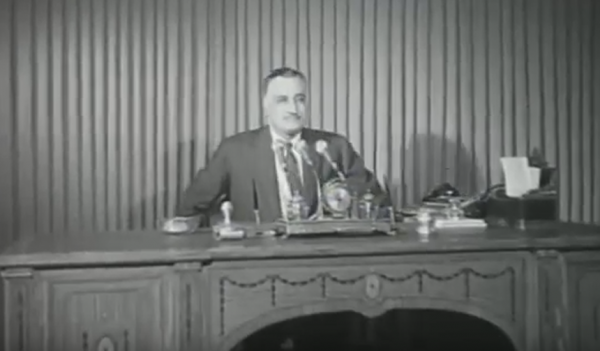
[Nasser announces his resignation | June 9, 1967 | credit: Jerusalem Post, You Tube]
Turns out they’ve bought into his lies hook, line and sinker. Somehow Nasser has been able to “stand reality on its head” to convince the Egyptians that they’re the ones who have been victimized—rather than defeated by Israel in self-defense.
We reached out to our colleagues in Cairo for an update.
They’re convinced that the resignation will be reversed, and that Nasser will still be in office tomorrow morning.
They’re telling us that the man is too popular and beloved to go down in ignominy. Egypt’s public will likely forgive him.
It seems impossible to us that Nasser will survive politically. But one of our colleagues shared a post that he wrote about it, and it’s made us reconsider.
The post retells a conversation that our colleague overheard—a telling description of how Nasser managed to hoodwink a country:
The [Egyptian] men possessed mismatched temperaments, yet they all offered various rumors, all with impeccable provenance, to attempt an understanding of what they could not yet name, or perhaps dare not name. Many of these rumors would be offered the next day by the President of the Republic in lieu of accountability. The great man was a supreme conjurer who could tease hopes and dreams out of thin air and then let the people watch them flutter away as doves do in a magic act. The rumors were ramparts against reality, building an air tight case for collusion and a massive stab in the back by external forces. The number of planes in the air was three times the size of the Israeli air force, so where did the additional planes come from? And what about the attack from the west, where only the American airbase in Libya could support such a venture? Didn’t some farmer find American insignia below the hastily painted Israeli star on a downed airplane?
The men were not all supporters of Nasser, but in a moment of crisis they could no more part with him than accept the undiluted humiliation of the day. One of the men spoke forcefully to the dashboard. “Bas Kedda. El Zubat Kharabo El Balad”. “Enough. The army officers have ruined the country”. Another felt safe to raise a point in the company of friends…What if the price of defeat is the removal of Nasser? No one could imagine a different leader, or one that was not an army officer. In fact, there seemed to be no alternative to the great man…The Egyptians, in their hurt pride, had conjured their great conjurer out of their own pain and sense of underachievement. His errors had become synonymous with the nation’s hopes”.
Our colleagues are probably right.
Based on the outpouring of public sympathy for Nasser that’s being reported today, he’ll probably soon withdraw his resignation.

[Egypt’s President Nasser | June 1967 | Credit: salamamoussa.com]
With Nasser still in power, it’s not likely that peace will prevail along the border after this week’s war comes to an end. We’ll probably see the cease-fire line heat up with new military confrontations along the Suez Canal.
The Soviets will also be determined to revive their influence and boost the confidence of their defeated client—no doubt we’ll soon be seeing a massive resupply of arms to Egypt.
The cease-fire isn’t a day old, but we’re already hearing rumors that Nasser and his generals are talking about “liquidating the consequences” of their devastating defeat in the Sinai.
This week, Israel escaped certain annihilation and won a miraculous victory. But we hope that the current Israeli government won’t bask too long in these glories. We’re convinced that Egypt will soon be sinking the Navy’s boats and shelling IDF positions near the Suez Canal.
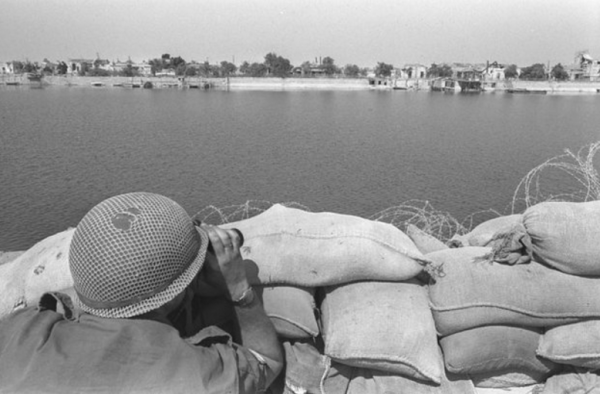
[Israeli soldier observes Suez Canal | War of Attrition, 1967-1970 | IDF archives]
Peace will only come with a new Egyptian leader with a different vision.
The Battle for the Golan
Entrenched in the Golan Heights, Syria has held high ground for the past 19 years. It’s used this strategic vantage point to regularly shell Israeli cities, villages, and kibbutzim (agricultural communes).
.
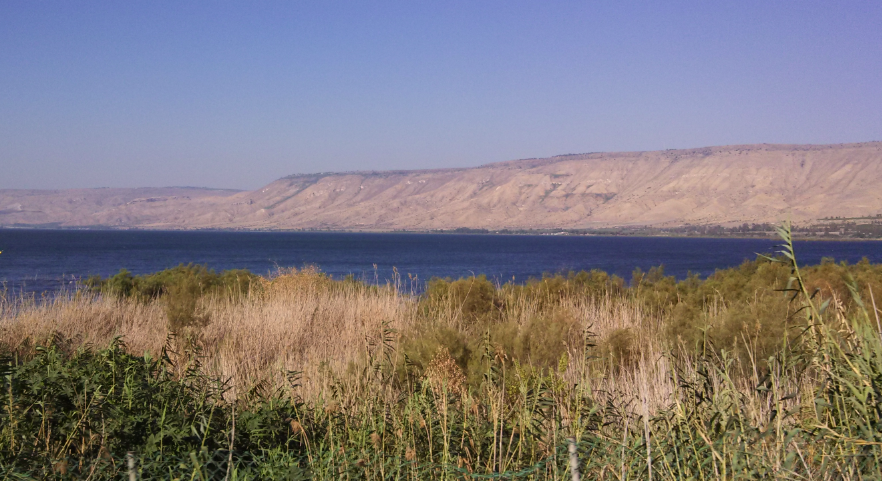
(Golan Heights over Sea of Galilee)[Photo credit: William Jacobson 2013]
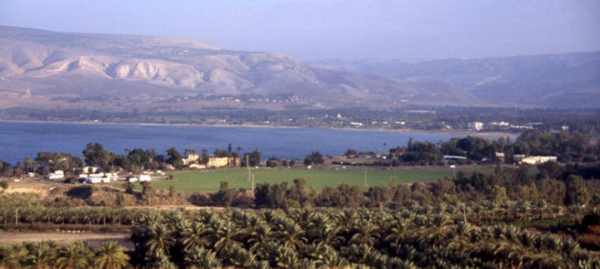
[Golan Heights | credit: United with Israel]
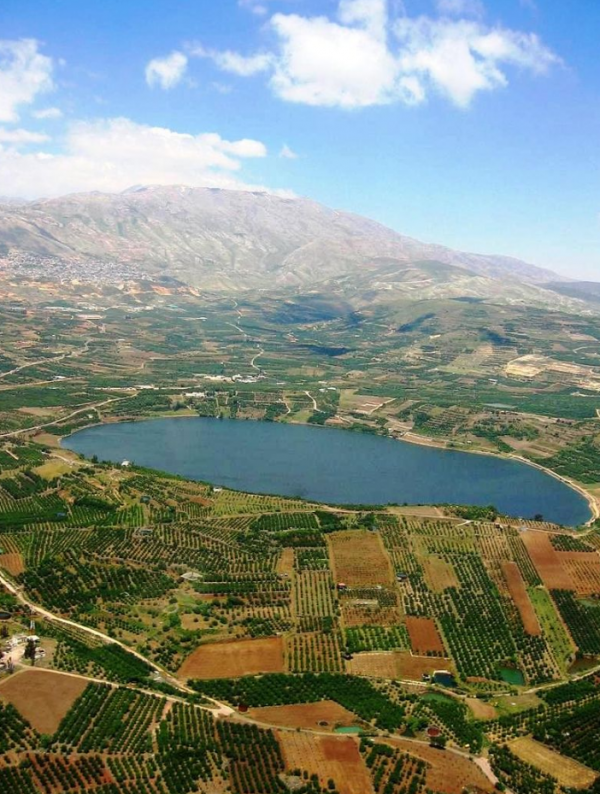
[Lake Ram near Mt. Hermon | Golan Heights]
The Syrian government has also let terrorists led by Yasser Arafat’s Fatah to have free reign of the place. For some years they’ve used the Heights to stage attacks against Israeli civilians.
Over 120 innocents living in northern Israel have lost their lives.
It’s been an intolerable situation, putting Israelis in near constant danger.
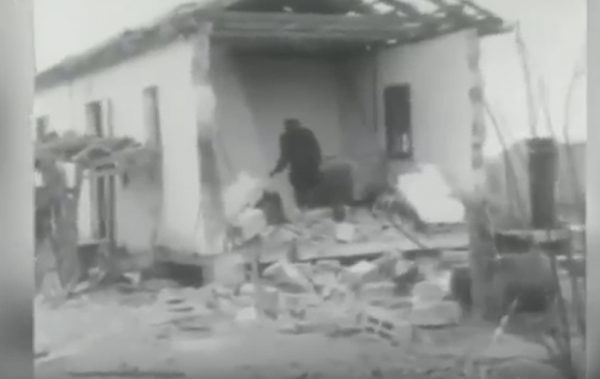
[Israeli home damaged by Syrian rocket fire | circa 1949-1967 | credit: Jerusalem U, You Tube]

[Israeli father mourns his child’s death following a Syrian attack | circa 1949-1967 | credit: Jerusalem U, You Tube]
The IDF completed its mission vis-avis Egypt overnight. The Sinai peninsula is in our hands, and our forces stand at the #Suezcanal.
— Moshe Dayan on TW (@MosheDayan67) June 9, 2017
2/2 Strategically unwise to leave #Syria unscathed after so many years of shelling our civilians, but battle would be long and costly.
— Moshe Dayan on TW (@MosheDayan67) June 9, 2017
His concerns haven’t been without merit.
But the situation is different today. The Soviets don’t seem eager to intervene at this juncture. And Egypt and Jordan have agreed to cease-fires, allowing forces to be redirected to the Northern Command (the 8th Brigade in the Sinai and the Golani Brigade can both be brought in as main breaching forces; the Northern Command can also now receive reinforcements from the Jordanian front).
So we weren’t surprised to receive word late this morning that Dayan had changed his mind and ordered a counter-attack.
9.6.67 With IAF freed from combat in Sinai, Israel turns its sights on Syria. Heavy aerial bombardment began at 09:40 pic.twitter.com/6r9ZyweBmI
— Foreign Journalist (@MEjournalist67) June 9, 2017
Massive numbers of planes above us. The Israel Air Force is attacking the Syrians where they've been shooting at us all week.
— Kibbutz Volunteer'67 (@KarinBerg67) June 9, 2017
Today’s battles haven’t been a cake-walk.
The brigades in the region have fought valiantly under heavy Syrian artillery shelling. In particular, the 8th Brigade met heavy resistance traversing difficult terrain.
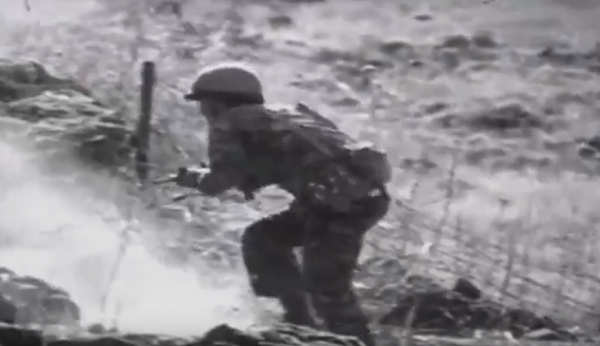
[Israel’s counter-offensive on the Golan Heights | June 9, 1967 | credit: Jerusalem U, You Tube]
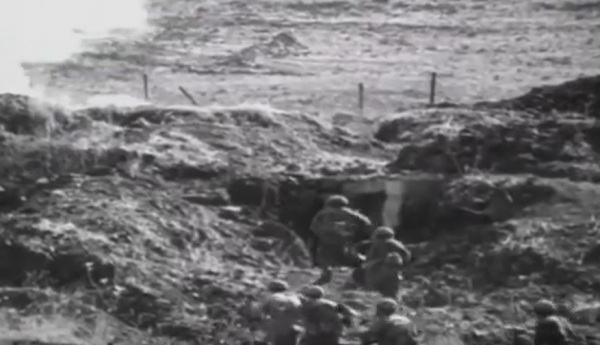
[Israel’s counter-offensive on the Golan Heights | June 9, 1967 | credit: Jerusalem U, You Tube]
The combat has been so intense I can't describe it. Syrians fighting for every inch. We've suffered many losses but we are making headway.
— IDF Reservist '67 (@YoavSadon) June 9, 2017
Israeli and Syrian forces engaged in close combat as Israel tries to scale the Golan Heights. Heavy losses reported on both sides
— Foreign Journalist (@MEjournalist67) June 9, 2017
At nightfall, we’re getting word that all the brigades are making steady advances and the heavy fighting is resulting in numerous IDF victories.
The Future of the Golan Heights
In Biblical times the Golan was referred to as the city in “Bashan” (Deuteronomy 4 and Joshua 21). There’s been a Jewish presence in the place since the days of the First Temple (953-586 BCE).
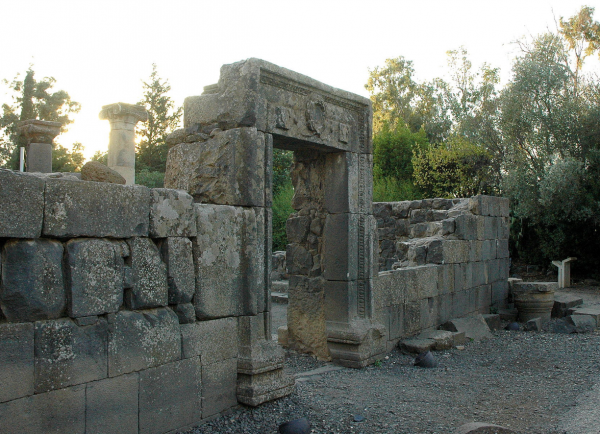
[Entrance to Talmudic-era synagogue | Katzrin, Golan Heights]
A Jewish presence was renewed in the late 1800s, and most of the area was included within the British Mandate for Palestine in 1922. But many of those communities didn’t survive the anti-Jewish Arab riots of 1920. Still, smaller Jewish-owned farms continued to work the land until 1947, when the area was taken over by the Syrian army.

[Organic vineyard | Golan Heights]

That’s when it became “open season for killing Israelis” on their own territory.
Syria used the Heights as a military stronghold and its troops have been randomly sniping at Israeli civilians in the valleys below for the past two decades.
Whole generations of children have had to sleep in bomb shelters.
Repeated protests to the United Nations about this continuous Syrian bombardment have been useless. The UN hasn’t halted Arafat’s Fatah attacks either (Security Council resolutions condemning Syria for its aggressive provocations have been continually vetoed by the Soviet Union).
With Israel’s seizure of the Golan Heights near complete, IDF military rule will soon apply to the area. But we hope that in time Israeli civilian law and administration will come to govern this historically and strategically important place.
Perhaps the Golan will one day be annexed to Israel and that Jews will once again be able to make their homes, raise their families, and live out their lives there in peace.
Conclusion
With only Kuneitra and the Mt. Hermon slope left to capture, we’re confident that Israel’s campaign on the northern front will soon come to a successful conclusion, and that cease-fires on all fronts will shortly be signed.
Victory is at hand and Israel’s government is already discussing the terms that it’ll present to its defeated neighbors. We’re hearing rumors that the government ministers are unanimous in welcoming peace talks—but only under the conditions that Israel never have to return to the vulnerable armistice lines of 1949 or to a divided Jerusalem.
They’re hinting that Israel will be “unbelievably generous in working out peace terms” and that “everything is negotiable.”
We can only hope that this magnanimity won’t include forfeiting the Golan Heights.
Relinquishing the area to a hostile Syria makes no sense—it’ll jeopardize the early warning system against surprise attack that controlling the Heights affords. There’s just no way that Israel can risk an enemy state, a powerful army, or a jihadist guerilla group gaining control once again of this strategic plateau.
So for the foreseeable future, the Jewish state’s security will likely depend on the IDF’s continued control of the Heights (demilitarizing the place could be an option in the future—but only in return for full normalization of relations with Syria and security guarantees).
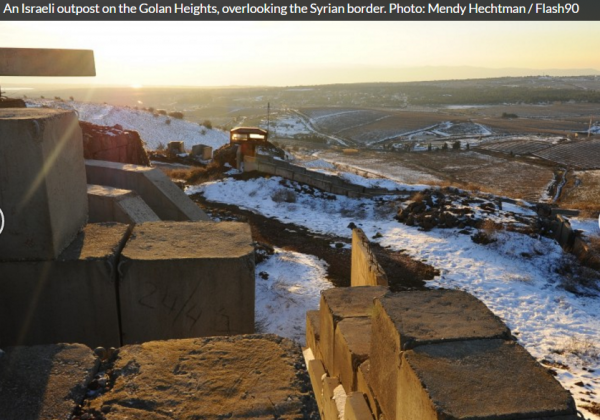
Bottom line: Israel has a strong case for sovereignty in the Golan Heights: they weren’t captured in an aggressive war, but through a defensive conquest. The grieving families of the over 100 IDF soldiers who gave their lives there today deserve to know that “Israel will never come down from the Golan.”
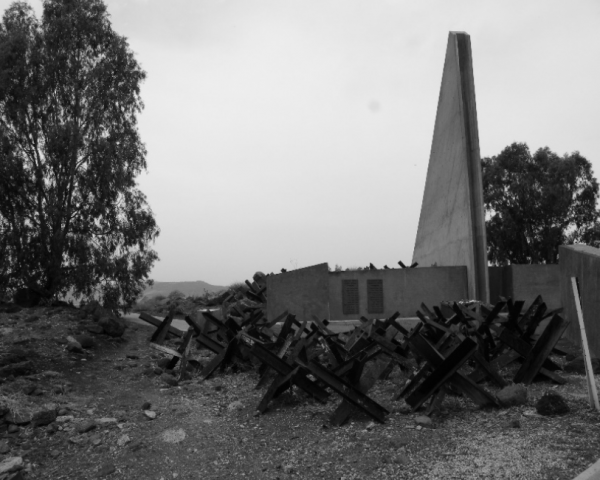
[Remains of Syrian Fortification | Golan Heights | credit: Middle East Forum]
Miriam F. Elman is an Associate Professor of Political Science and the Robert D. McClure Professor of Teaching Excellence at the Maxwell School of Citizenship & Public Affairs, Syracuse University. She is the editor of five books and the author of over 60 journal articles, book chapters, and government reports on topics related to international and national security, religion and politics, and the Israeli-Palestinian conflict. She also frequently speaks and writes on the Boycott, Divestment, and Sanctions (BDS) anti-Israel movement. Follow her on Twitter @MiriamElman
Donations tax deductible
to the full extent allowed by law.







